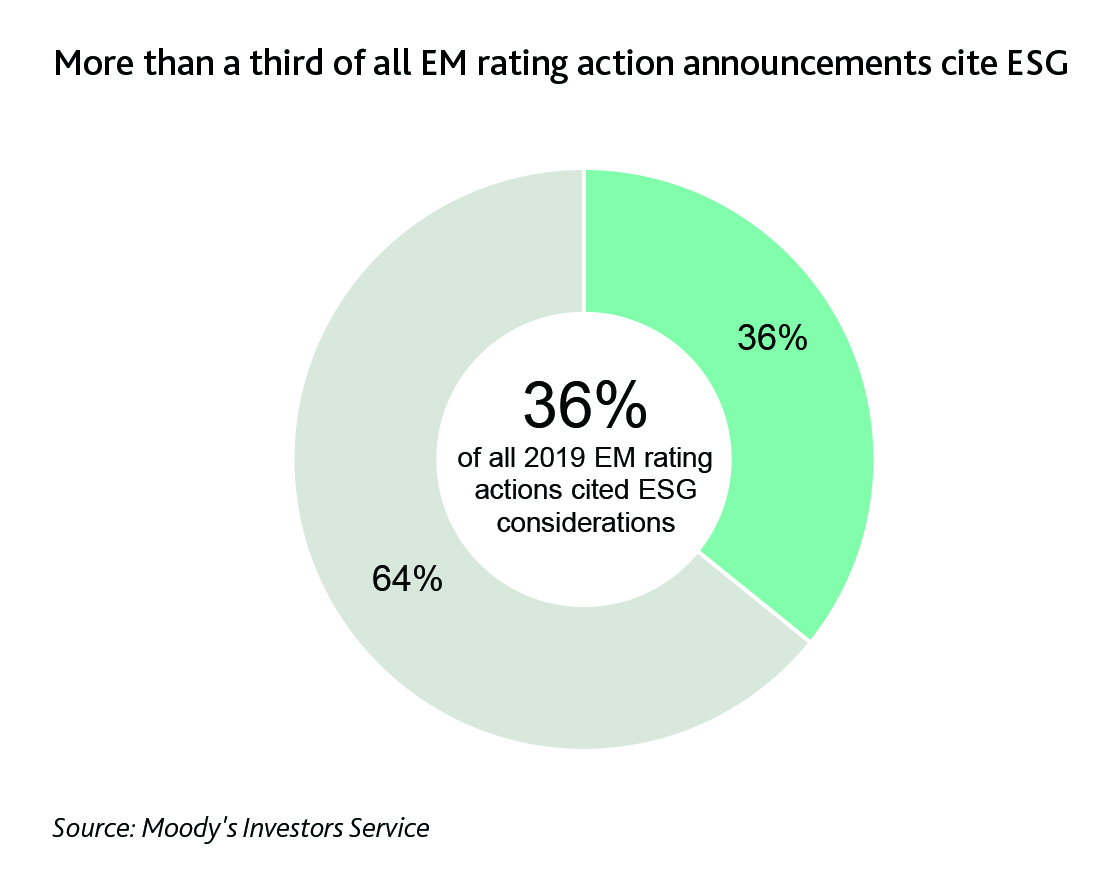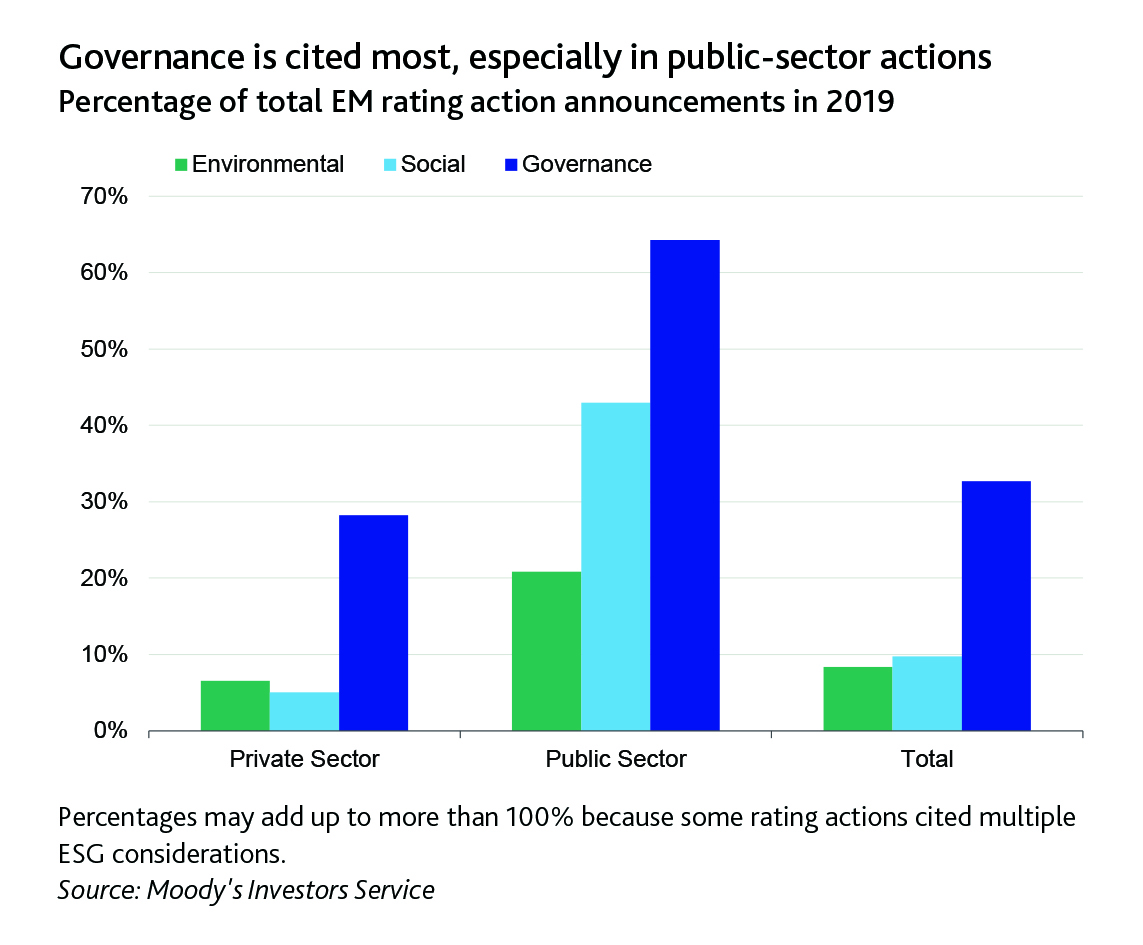Environmental, social and governance (ESG) credit risks are more prevalent in emerging markets than in developed markets, while issuers’ capacity to respond to these risks is often also weaker, according to a new report.
Moody’s Investors Service says 36% of its nearly 1,800 rating actions on debt issuers in emerging markets in 2019 involved material ESG considerations, dominated by governance factors.
“We expect ESG considerations to become even more material to debt issuers’ credit quality globally – and particular in EMs – given the range and rise of ESG risks such as climate change and public health,” says Nishad Majmudar, a Moody’s assistant vice president and analyst.

An ESG citation indicates that the factor is material to a debt issuer’s overall credit quality, but does not necessarily mean that it is the primary driver of a rating action, Moody’s explains. The rating action can be driven instead by factors unrelated to ESG, such as changes in economic growth, profitability or leverage ratios.
The credit rating agency also notes that ESG considerations are more prevalent in rating actions for public-sector debt issuers in emerging markets than for their peers in developed markets, reflecting generally weaker fiscal, financial and institutional characteristics. The difference is especially clear when comparing factors such as challenges to sustainable development and vulnerability and readiness for physical environmental risk.
Governance was cited as an ESG risk across a broad range of private-sector ratings, indicating its importance and pervasiveness in Moody’s credit analysis. Governance considerations tend to be issuer or transaction-specific, whereas environmental and social considerations tend to be more sector-specific.

Covid-19, which Moody’s considers a social risk, has also brought to the fore the materiality of key social and governance issues globally and has been factored into many rating actions this year. "The pandemic will intensify the focus of companies, investors and other stakeholders on ESG factors, with the scrutiny extending beyond public health crises to other issues, such as climate change and social inequality," Moody's notes.









